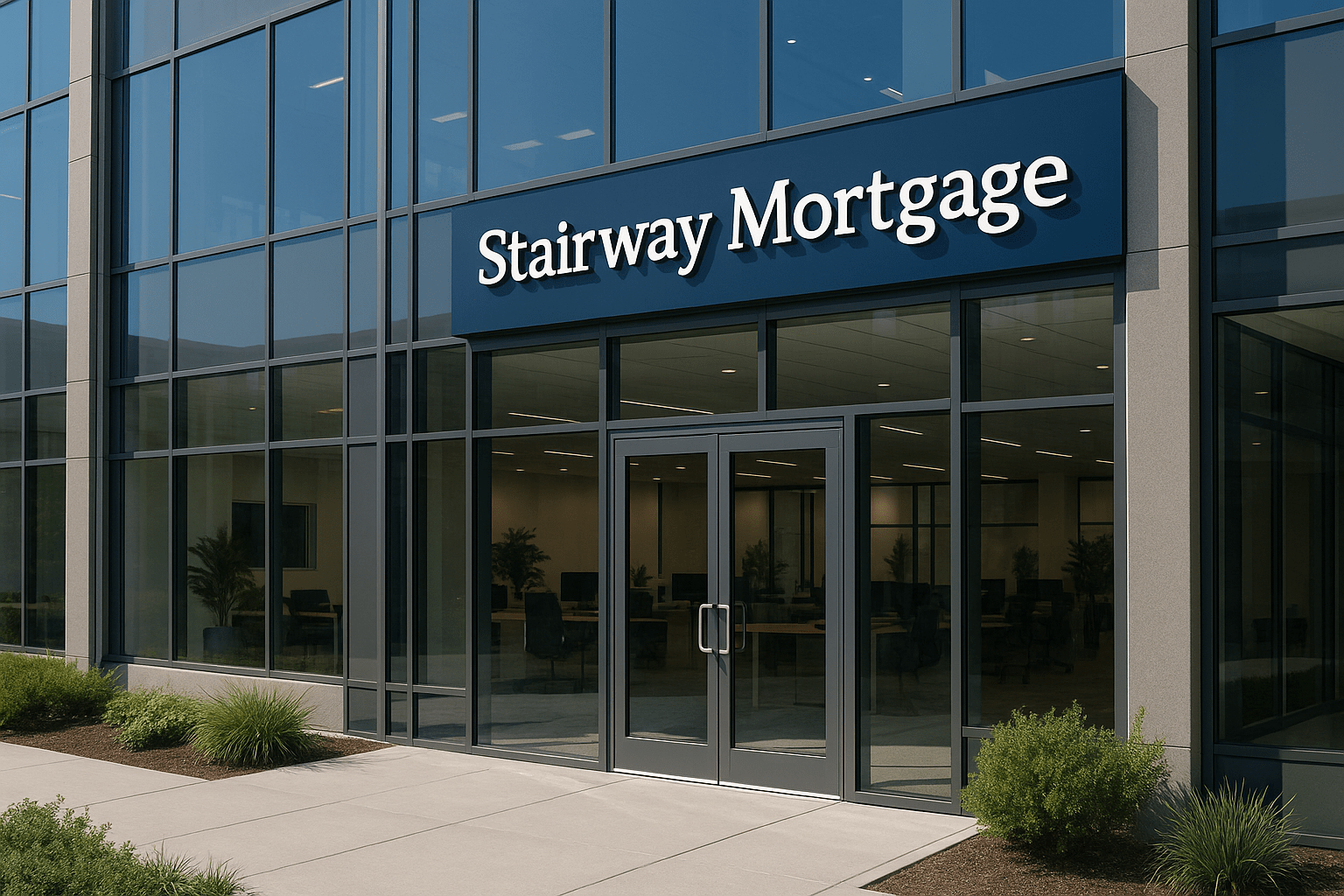Moving Out of State: How to Handle Your Mortgage and Property Strategically
Moving Out of State: How to Handle Your Mortgage and Property Strategically

Relocating Out of State: Keep as Rental vs Sell Analysis and Strategic Property Decisions
Moving out of state represents one of life’s major transitions—new job opportunities, family considerations, lifestyle changes, or career advancement pulling you to a different location. But unlike renters who simply give notice and leave, homeowners face complex financial decisions with long-term consequences.
What should you do with your current home when relocating across state lines? Sell and use proceeds for your next purchase? Keep it as a rental property building wealth from afar? Maintain it temporarily while you test your new location? Each option creates different financial outcomes, tax implications, and lifestyle impacts.
This decision affects your financial future for years or decades. The wrong choice can cost you tens of thousands in unnecessary taxes, lost appreciation, or holding an underperforming asset. The right choice can transform a life transition into a wealth-building opportunity.
In this guide, you’ll discover:
- Complete analysis of keep-as-rental versus sell decisions
- How to finance your next home while keeping your current property
- Managing rental properties from out of state effectively
- Tax implications of multi-state property ownership
- Strategic timing considerations for maximum benefit
- When each option makes financial sense
This isn’t about what most people do—it’s about what works best for your specific situation, goals, and circumstances.
Relocating soon and unsure what to do with your property? Schedule a call to discuss your strategic options.
What Options Do You Have When Moving Out of State?
Homeowners relocating face three primary choices, each with distinct advantages and challenges:
Option 1: Sell Your Current Home
The traditional approach—list your home, close the sale, and use proceeds for your down payment and moving expenses in your new location.
Advantages:
- Clean break from your old location
- Maximum cash for down payment on next home
- No ongoing property management responsibilities
- Simplified finances with single mortgage
- Avoid landlord responsibilities and risks
Disadvantages:
- Potential capital gains taxes on appreciation
- Loss of future appreciation on current home
- Transaction costs (agent commissions, closing costs)
- Reduced wealth-building through lost property
- Can’t return easily if relocation doesn’t work out
Option 2: Keep as Rental Property
Convert your primary residence to investment property, finding tenants to occupy while you establish life in your new location.
Advantages:
- Build wealth through continued ownership
- Rental income covers (or mostly covers) mortgage
- Future appreciation grows your net worth
- Tax benefits through depreciation and deductions
- Safety net if new location doesn’t work out
- Diversified real estate portfolio across markets
Disadvantages:
- Property management from distance
- Qualifying for new mortgage while keeping current one
- Landlord responsibilities and risks
- Potential vacancy periods with no income
- Maintenance and repair coordination remotely
- More complex financial situation

Option 3: Temporary Hold Strategy
Keep the property temporarily without immediately deciding, giving yourself time to assess your relocation and market conditions.
Advantages:
- Time to ensure relocation works before selling
- Flexibility to return if circumstances change
- Avoid selling in down market if timing is poor
- Test rental market without full commitment
Disadvantages:
- Carrying costs without rental income
- Can’t use equity for new home down payment
- Qualifying challenges for new mortgage
- Property sits vacant or requires temp arrangements
- Delays inevitable decision
How Do You Decide: Keep as Rental or Sell?
The keep versus sell decision requires honest financial analysis, not emotional attachment or assumptions. Consider these factors:
Financial Analysis
Run detailed numbers comparing both scenarios:
Selling scenario:
- Net proceeds after agent commissions, closing costs, and payoffs
- Capital gains taxes owed (if applicable)
- Cash available for new home down payment
- Simplified monthly budget with one mortgage
Rental scenario:
- Expected monthly rental income in your market
- Complete expenses (mortgage, taxes, insurance, HOA, maintenance reserves, property management)
- Monthly cash flow (positive or negative)
- Long-term appreciation potential
- Tax benefits from depreciation
Break-even analysis: How long until keeping the rental equals proceeds from selling after considering all costs, tax impacts, and opportunity costs?
Use the rental property calculator to model your specific scenario with actual numbers, not guesses.
Market Rent vs. Mortgage Payment
Can you rent the property for enough to cover expenses? Research actual rents for comparable properties in your neighborhood using rental listing sites, talking to property managers, and reviewing market reports.
Ideal scenario: Rent exceeds your complete monthly costs (mortgage, taxes, insurance, HOA, maintenance reserve, property management) creating positive cash flow.
Acceptable scenario: Rent covers most costs with modest negative cash flow you can afford, betting on appreciation and tax benefits for overall returns.
Problem scenario: Rent falls significantly short of costs, creating substantial ongoing negative cash flow draining your resources monthly.
Property Suitability as Rental
Not all homes make good rentals. Consider:
Location desirability for renters—proximity to employment centers, schools, transportation, amenities. Properties in strong rental markets command better rents and lower vacancy.
Property condition and age—newer properties with modern systems require less maintenance. Older properties might face expensive repairs you’re managing remotely.
Layout appeal—homes with rental-friendly layouts (adequate bedrooms/bathrooms, practical kitchens, storage) rent faster and to better tenants than unique or impractical layouts.
Neighborhood rental prevalence—areas with many rentals attract renter tenants. HOAs in predominantly owner-occupied communities sometimes restrict rentals or charge premium fees.
Your Financial Capacity
Can you afford to keep the property AND buy your next home? This requires:
Qualifying for your new mortgage while keeping your current mortgage active. Lenders count your current mortgage payment against your debt-to-income ratio, reducing how much you qualify for on your next purchase.
Sufficient reserves to cover both properties’ expenses, vacancy periods, and unexpected repairs. Most investors need several months of expenses saved beyond down payment funds.
Strong credit and income to support multiple mortgages simultaneously. Your debt-to-income ratio must accommodate both mortgages, all other debts, and still qualify you.
Cash for down payment on your new home without selling current property—typically requiring you to have saved substantial funds beyond your current home’s equity.
How Do You Finance Your Next Home While Keeping Your Current Property?
Qualifying for a new mortgage while maintaining your current mortgage creates financing challenges requiring strategic approaches:
Using Rental Income to Qualify
Lenders can count rental income toward your qualifying income, offsetting your current mortgage payment in debt-to-income calculations. However, requirements exist:
Lease agreement in place showing tenants occupying your property typically helps, though not always required. Some lenders want to see rental history, others accept signed leases or market rent analysis.
Percentage of rent counted varies by lender and situation. Most lenders count a percentage of gross rent (commonly around three-quarters) toward income, with the rest reserved for vacancy and expenses.
Documentation requirements include leases, tenant payment history, property management agreements, and sometimes tax returns showing rental income if you’ve been renting the property previously.
Work with experienced lenders understanding investment property financing—not all lenders handle these scenarios effectively.
Portfolio or Non-QM Lending Options
Traditional conforming loans have strict debt-to-income limits making dual mortgages challenging. Portfolio and non-QM lenders offer more flexibility for situations like yours:
Bank statement loans use deposits rather than tax returns for income verification, helping self-employed relocators or those with complex income.
DSCR loans qualify based on rental property cash flow rather than your personal income, perfect for keeping rentals while buying new homes.
Asset-based loans use liquid assets for qualification rather than traditional income verification.
These programs typically require larger down payments and slightly higher rates than conforming loans, but they enable strategies conventional financing can’t accommodate.
Using Home Equity Strategically
Tapping your current home’s equity can fund your next down payment:
Cash-out refinance your current home before converting to rental, pulling equity for your new down payment. Ensure the new payment still allows positive or break-even cash flow with rental income.
HELOC provides revolving credit against equity, useful for down payments or reserves. However, monthly HELOC payments add to your expense burden on the rental.
Bridge loans provide short-term financing using current home as collateral, paid off when you eventually sell. These work for temporary holds while deciding long-term strategy.

How Do You Manage Rental Property From Out of State?
Successful remote property management requires systems, boundaries, and often professional help:
Property Management Companies
Hiring professional management costs typically around ten percent of monthly rent but provides invaluable services:
Tenant placement—advertising, showing property, screening applicants, executing leases, collecting deposits. This alone justifies management fees for many remote landlords.
Rent collection—handling monthly payments, late fees, and enforcement. No chasing tenants yourself or navigating difficult conversations remotely.
Maintenance coordination—fielding tenant requests, hiring contractors, overseeing repairs, handling emergencies. Your property manager becomes your local eyes and ears.
Legal compliance—ensuring leases comply with local laws, handling evictions if necessary, navigating changing regulations you might not track from afar.
Financial reporting—monthly statements showing income, expenses, and net cash flow. Professional record-keeping for tax purposes.
Vetting management companies carefully matters as much as vetting tenants. Interview multiple companies, check references, understand their fee structures and services, and ensure they manage properties like yours successfully.
Self-Management Systems
Some remote landlords successfully self-manage using technology and systems:
Online rent collection through services like Cozy, Apartments.com, or Buildium eliminates check hassles and provides automatic payment tracking.
Digital communication via text, email, and apps maintains responsive tenant relationships without being physically present.
Reliable contractor network established before relocating—plumbers, electricians, HVAC technicians, general handymen who respond promptly and charge fairly.
Regular property inspections either by yourself during visits or hired third parties ensure the property stays in good condition.
Legal support with a local real estate attorney familiar with landlord-tenant law in your state, available for questions and issues.
Self-management works best with strong systems, available time, and proximity allowing occasional visits. Many remote landlords start self-managing then transition to professional management as they scale or distance makes hands-on involvement impractical.
What Are the Tax Implications of Multi-State Property Ownership?
Owning property in your former state while residing in a new state creates tax complexities requiring professional guidance:
State Income Tax Filing
You’ll likely file tax returns in multiple states:
Resident return in your new state reporting all income from all sources.
Non-resident return in your former state reporting rental income from property located there.
Each state taxes rental income differently—some heavily, others not at all. Research tax implications before deciding to keep rentals in high-tax states.
Professional tax preparation becomes essential with multi-state property ownership. Local tax preparers understanding both states’ rules prevent costly mistakes.
Depreciation and Deductions
Rental properties provide significant tax benefits:
Depreciation deductions reduce taxable income, even while the property appreciates in value. This creates “phantom losses” offsetting other income.
Expense deductions include mortgage interest, property taxes, insurance, repairs, maintenance, property management fees, travel to inspect the property, and more.
These tax benefits often make marginal or break-even rental cash flow quite profitable after tax advantages. Work with CPAs understanding real estate taxation to maximize benefits legally.
Capital Gains Considerations
If you sell after converting to rental, capital gains taxes apply differently than if you’d sold while still your primary residence:
Primary residence exclusion allows substantial capital gains tax-free if you’ve lived in the home as your primary residence for sufficient years out of the past several years before selling. Converting to rental starts the clock on losing this benefit.
Strategic timing matters—some homeowners rent for a limited period then sell before losing primary residence benefits. Others plan long-term rental holds where capital gains taxes become irrelevant or minimized through 1031 exchanges eventually.
Consult tax professionals about your specific situation—don’t rely on general internet advice for complex tax decisions.
What Strategic Timing Considerations Matter?
When you execute your relocation strategy affects outcomes dramatically:
Market Conditions
Selling in strong markets maximizes proceeds. If home values in your current location are high relative to historical norms, selling might make sense even if renting could work.
Keeping in down markets preserves future upside. If values temporarily depressed, keeping as rental through market recovery protects wealth better than selling at a loss or minimal gain.
New market conditions in your destination location also matter. Strong buyer’s markets with low inventory might pressure you to sell current home for competitive offers on your next purchase.
Season and Logistics
Spring and summer traditionally bring more buyers and higher prices for sellers, while rental markets also peak then with families moving between school years.
Your relocation timeline might not align with ideal market timing. Balance optimal financial decisions with practical life circumstances—sometimes accepting slightly less-than-perfect timing beats delaying life transitions for marginal financial gains.
Trial Period Strategy
Some homeowners keep properties initially, renting in their new location rather than immediately buying. This tests whether relocation works before committing to selling.
After six to twelve months, if the new location suits you permanently, then sell your former home with confidence. If it doesn’t work out, you can return without having severed ties.
Carrying costs during this testing period include your mortgage, taxes, insurance, and potentially rent in your new location—expensive but providing valuable certainty about major life decisions.
When Should You Definitely Sell vs. Definitely Keep?
Certain situations clearly favor one option:
Definitely Sell If:
- Property won’t rent for enough to cover expenses and you can’t afford ongoing negative cash flow
- You need the equity for down payment on your next home and can’t qualify for new mortgage while keeping current one
- Property is in poor condition requiring expensive repairs you can’t manage remotely
- Local rental market is weak with high vacancy and low demand
- You have no systems, support, or interest in being a landlord
- Tax benefits from primary residence capital gains exclusion significantly outweigh potential rental income and appreciation
Definitely Keep If:
- Rental income significantly exceeds all expenses, creating strong positive cash flow
- You can qualify for and afford your next home without selling
- Property is in excellent condition in a strong rental market
- You have (or can hire) capable property management
- Long-term appreciation potential is strong
- Tax benefits and wealth building through rental outweigh proceeds from selling
- Keeping provides safety net if relocation doesn’t work permanently
Further Analysis Needed If:
- Rental income roughly breaks even with expenses
- You’re uncertain about long-term relocation success
- Market conditions are mixed with unclear future direction
- You could manage either scenario financially but unsure which builds more wealth
- Tax implications are complex requiring professional analysis
For these uncertain situations, model both scenarios thoroughly, consult with financial and tax professionals, and make informed decisions based on your specific circumstances and goals.
How Does Stairway Mortgage Help With Out-of-State Relocations?
Navigating property and mortgage decisions during cross-country moves requires expertise in multiple loan programs, creative financing strategies, and understanding investment property qualification. At Stairway Mortgage, we guide homeowners through these complex transitions:
We help you analyze keep versus sell decisions using detailed financial modeling showing projected returns, cash flows, and long-term wealth building for each scenario.
We explain how to qualify for your next home while keeping your current property, utilizing rental income, portfolio loan programs, or creative strategies enabling dual-property ownership.
We structure financing matching your strategy—whether that’s conventional loans, cash-out refinances accessing equity, DSCR loans for rental properties, or specialized programs for complex situations.
We coordinate timing ensuring smooth transitions whether you’re selling first then buying, buying with contingent sales, or keeping current property as rental while purchasing new.
We connect you with resources including property managers, tax professionals understanding multi-state ownership, and real estate agents in both locations.
Many relocating homeowners we’ve worked with successfully converted former primary residences into profitable rental properties, building wealth across multiple markets while establishing new lives in different states.
Ready to Handle Your Out-of-State Move Strategically?
Relocating across state lines creates complex property and financial decisions with long-term consequences. By analyzing your options thoroughly, understanding financing implications, and planning strategically, you can turn this major life transition into a wealth-building opportunity rather than a stressful financial challenge.
Your next steps:
If you’re relocating soon and need help deciding what to do with your property, schedule a call to discuss your specific situation and explore strategic options.
If you’re planning to keep your current home as rental while buying your next property, explore financing options that enable this strategy.
Calculate your rental property potential:
- Use the rental property calculator for cash flow analysis
- Try the cash-out refinance calculator if accessing equity
- Review DSCR loan benefits for investment property financing
Remember: The right decision depends on your specific financial situation, property characteristics, market conditions, and long-term goals. Don’t make this choice based on what others do or conventional wisdom—make it based on thorough analysis of your unique circumstances.
Need a Pre-Approval Letter—Fast?
Buying a home soon? Complete our short form and we’ll connect you with the best loan options for your target property and financial situation—fast.
- Only 2 minutes to complete
- Quick turnaround on pre-approval
- No credit score impact
Got a Few Questions First?
Let’s talk it through. Book a call and one of our friendly advisors will be in touch to guide you personally.
Schedule a CallNot Sure About Your Next Step?
Skip the guesswork. Take our quick Discovery Quiz to uncover your top financial priorities, so we can guide you toward the wealth-building strategies that fit your life.
- Takes just 5 minutes
- Tailored results based on your answers
- No credit check required
Related Posts
Subscribe to our newsletter
Get new posts and insights in your inbox.







